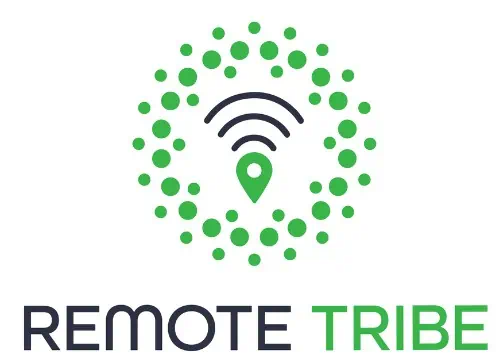Ah, Europe. With its rich history, diverse culture, and incredible landscapes, it’s no wonder that many of us dream of living here or at least traveling here. Anyway, while most European countries are indeed expensive (but not really more expensive than the big cities in the US), there are still some cheap European countries (especially in the center, east, and south-east of Europe) that offer just as much charm and beauty with extremely reasonable budgets. Whether you’re a traveler, a digital nomad, or someone who’s considering relocating for a taste of European life, this list has got you covered. So, let’s dive into the cheapest countries in Europe to live.
Table of Contents
Cheapest European Countries To Live
1. Albania
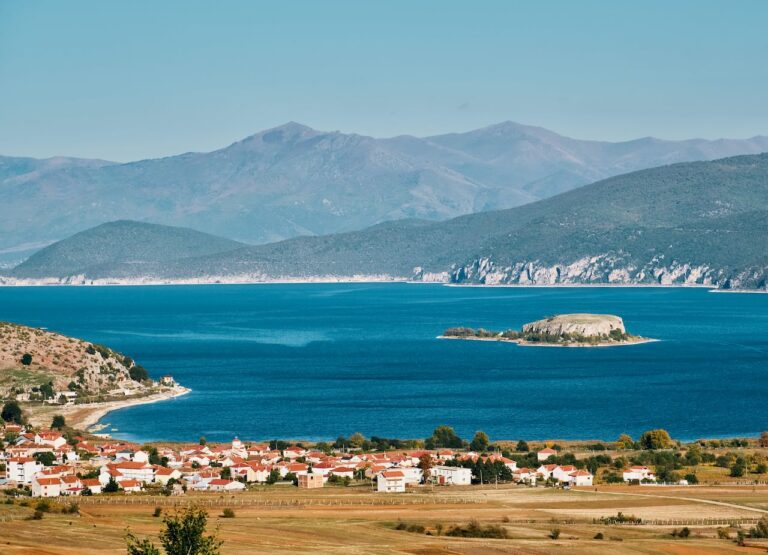
Brimming with undiscovered beauty, Albania offers more than just affordability. Besides its mesmerizing coastline, the UNESCO site of Gjirokastër, known as the “City of Stone”, showcases Ottoman architecture and Albanian traditions.
In Tirana, check out the colorful buildings and the remnants of its communist past at Bunk’Art. Albanian cuisine? Think Byrek (savory pies) and delicious Tavë Kosi (baked lamb with rice). You can get dishes like these for as little as $5. And if you’re considering a longer stay, coastal apartments cost around $300 monthly. Transport tip: Use the furgons or minibuses; they’re an affordable and authentic way to get around.
Albania is hands down of the cheapest European country to visits these years.
- Tourist Visa 🛂: Typically, travelers from many countries can enter Albania without a visa for stays up to 90 days within a 180-day period.
- Digital Nomad Visa👩🏼💻: As of 2022, Albania has announced plans for a digital nomad visa, but you’d need to check the latest developments here.
Albania
| Stat | Detail |
|---|---|
| Average Temperature | 15°C |
| Currency (vs USD) | Lek |
| Language (English Spoken %) | Albanian (40%) |
| Population | 2.8 million |
| Average Salary (Net per Month) | $450 |
| Capital City | Tirana |
2. Lithuania
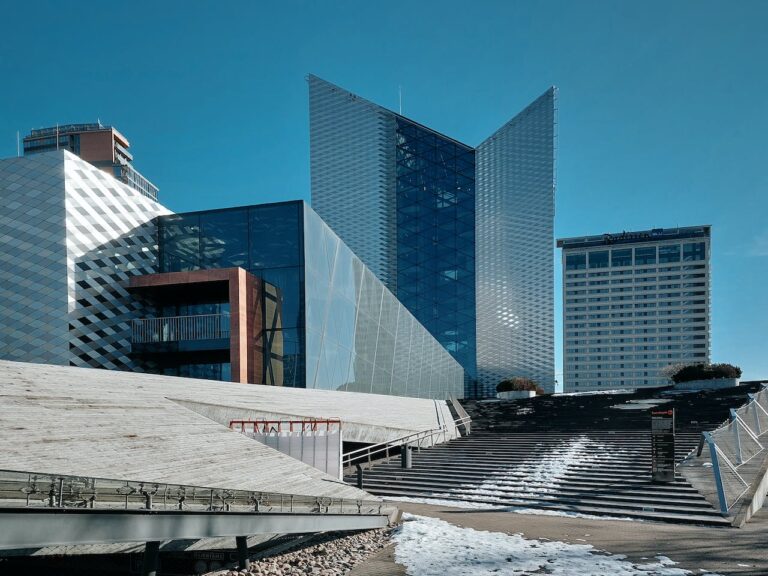
Lithuania is a fusion of the old and new. Beyond Vilnius, explore Trakai Castle, situated on an island in the midst of a serene lake. In summer, Nida’s golden sand dunes call out to sun-seekers and artists alike. Lithuanian cuisine is both hearty and gratifying – try the ‘cepelinai’ or potato dumplings filled with meat, cheese, or mushrooms.
With meals at $6-$10 and city-center rentals around $500-$700 monthly, Lithuania offers value without compromising experience.
- Tourist Visa 🛂: Part of the Schengen Area, meaning many travelers can stay visa-free for 90 days within a 180-day period.
- Digital Nomad Visa👩🏼💻: Lithuania has been actively promoting itself for remote work, but as of my last update in 2022, no specific digital nomad visa had been established. Follow the developments here.
Lithuania
| Stat | Detail |
|---|---|
| Average Temperature | 6°C |
| Currency (vs USD) | Euro |
| Language (English Spoken %) | Lithuanian (80%) |
| Population | 2.8 million |
| Average Salary (Net per Month) | $900 |
| Capital City | Vilnius |
3. Latvia
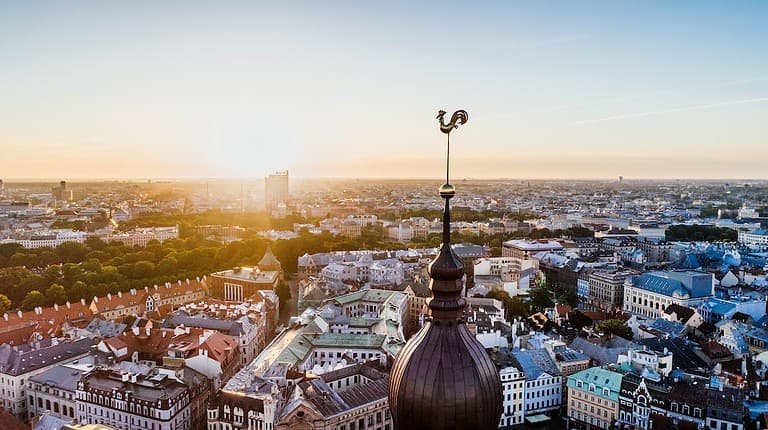
Latvia is an enchanting blend of beaches and forests. Beyond Riga, consider a visit to Cēsis, a picturesque town with medieval vibes, or hike in Kemeri National Park with its surreal swamps. From smoked fish in coastal towns to Riga’s Black Balsam liquor, your taste buds are in for a treat, all within a budget of $5–$15 per meal. Monthly rentals? A steal at around $500–$650. Latvia has been at the top lately as one of the cheapest European countries to visit in 2023, and without a doubt, it will continue to be a safe and quiet country for the next few years.
- Tourist Visa 🛂: Also a Schengen Area member with the standard 90/180 rule.
- Digital Nomad Visa👩🏼💻: Latvia introduced a digital nomad visa in 2020. More info here.
Latvia
| Stat | Detail |
|---|---|
| Average Temperature | 6°C |
| Currency (vs USD) | Euro |
| Language (English Spoken %) | Latvian (70%) |
| Population | 1.9 million |
| Average Salary (Net per Month) | $850 |
| Capital City | Riga |
4. Spain
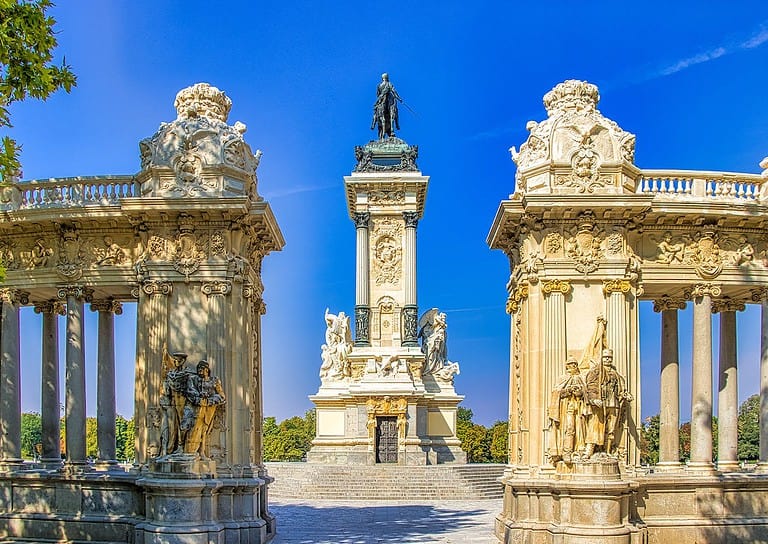
Spain’s magic isn’t just limited to its famous cities. Regions like Extremadura or La Rioja offer authentic experiences without the crowds. Think ancient Roman theaters in Mérida or wine-tasting sessions in vineyards that won’t burn a hole in your pocket. Delight in a “Menu del Dia”, a multi-course lunch offering available across Spain for about $10–$15. With monthly rentals at $600-$800, Spain combines affordability with passion. However, you want to play it smart with Spain. It can be one of the cheapest countries in Europe DEPENDING on where you live. Cities like Mallaga, Barcelona, Madrid and Seville are quite expensive. However, go to Alicante, Granada or Cordoba and prices will differ greatly. You could probably starting living there decently with about 1000-1200 USD per month.
- Tourist Visa 🛂: Another Schengen country with the 90/180 rule.
- Digital Nomad Visa👩🏼💻: Spain introduced a digital nomad visa and a freelancer visa in 2023. More info here.
Spain
| Stat | Detail |
|---|---|
| Average Temperature | 16°C |
| Currency (vs USD) | Euro |
| Language (English Spoken %) | Spanish (30%) |
| Population | 47 million |
| Average Salary (Net per Month) | $1,500 |
| Capital City | Madrid |
5. Portugal
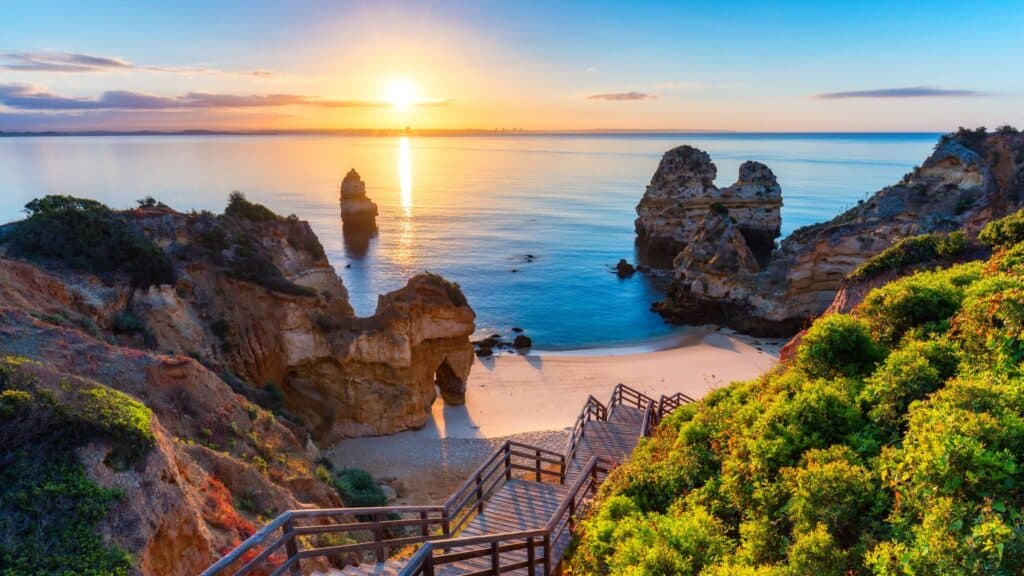
Beyond the allure of Porto’s Douro River or Lisbon’s tram-lined streets, Portugal boasts hidden treasures like the fairy-tale town of Sintra or the university city of Coimbra. Seafood lovers delight in dishes like Bacalhau a Bras, a scrumptious codfish preparation, for just $7-$15. Monthly stays in the scenic Algarve region can start at $650, where coastal views are a daily treat.
- Tourist Visa 🛂: Another Schengen country with the 90/180 rule.
- Digital Nomad Visa👩🏼💻: Portugal now also offers a digital nomad visa allowing foreign nationals to live there while working for employers located abroad. Read all about how you can live in this cheap European country here.
Portugal
| Stat | Detail |
|---|---|
| Average Temperature | 16°C |
| Currency (vs USD) | Euro |
| Language (English Spoken %) | Portuguese (35%) |
| Population | 10.3 million |
| Average Salary (Net per Month) | $1,000 |
| Capital City | Lisbon |
6. Czech Republic

Yes, there’s Prague, but have you heard of Český Krumlov? This UNESCO World Heritage site is like stepping into a medieval painting. Indulge in traditional Czech treats like Trdelník or Pilsner beer without splurging. A meal? Around $5-$10. A monthly quaint apartment in Moravia’s wine region? Think $500-$650.
- Tourist Visa 🛂: A member of the Schengen Area.
- Digital Nomad Visa👩🏼💻: Available from July 2023, the Czech Republic is offering a unique opportunity to digital nomads working in the IT field to live in the country for up to three years. The visa is valid for one year first time and allows holders to renew it as a residence permit, which is valid for two years. Read about it here.
Czech Republic
| Stat | Detail |
|---|---|
| Average Temperature | 8°C |
| Currency (vs USD) | Czech koruna |
| Language (English Spoken %) | Czech (30%) |
| Population | 10.7 million |
| Average Salary (Net per Month) | $1,200 |
| Capital City | Prague |
7. Romania
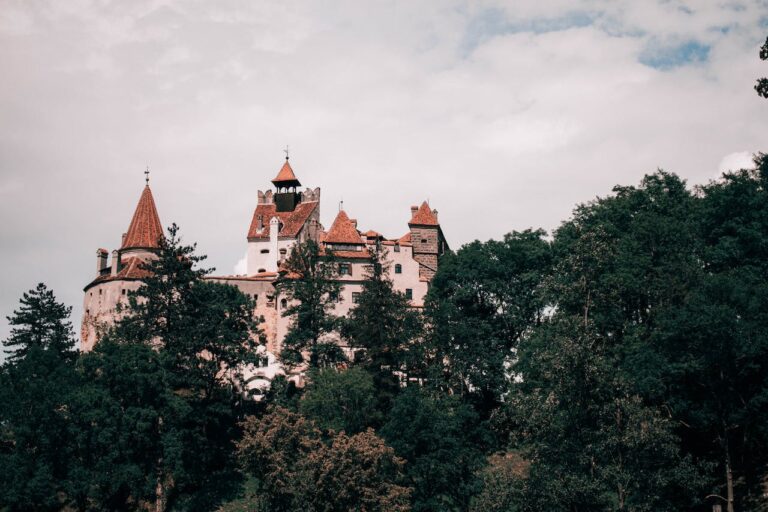
Beyond the urban appeal, Romania’s Carpathian Mountains are a haven for hikers and wildlife enthusiasts. Explore Transylvania’s fortified churches or take a journey on the Transfăgărășan road, often dubbed the most beautiful road in the world. From Mămăligă (cornmeal porridge) to Mămăliga cu brânză și smântână (with cheese and sour cream), a Romanian meal is both delightful and affordable at $6-$12.
Here's a short video on prices in Romania
- Tourist Visa 🛂: EU, EEA, and many other nationals do not need a short-stay visa.
- Digital Nomad Visa👩🏼💻: Romania introduced a digital nomad visa in late 2021. Find more details here.
Romania
| Stat | Detail |
|---|---|
| Average Temperature | 10°C |
| Currency (vs USD) | Romanian leu |
| Language (English Spoken %) | Romanian (40%) |
| Population | 19.4 million |
| Average Salary (Net per Month) | $850 |
| Capital City | Bucharest |
8. Montenegro
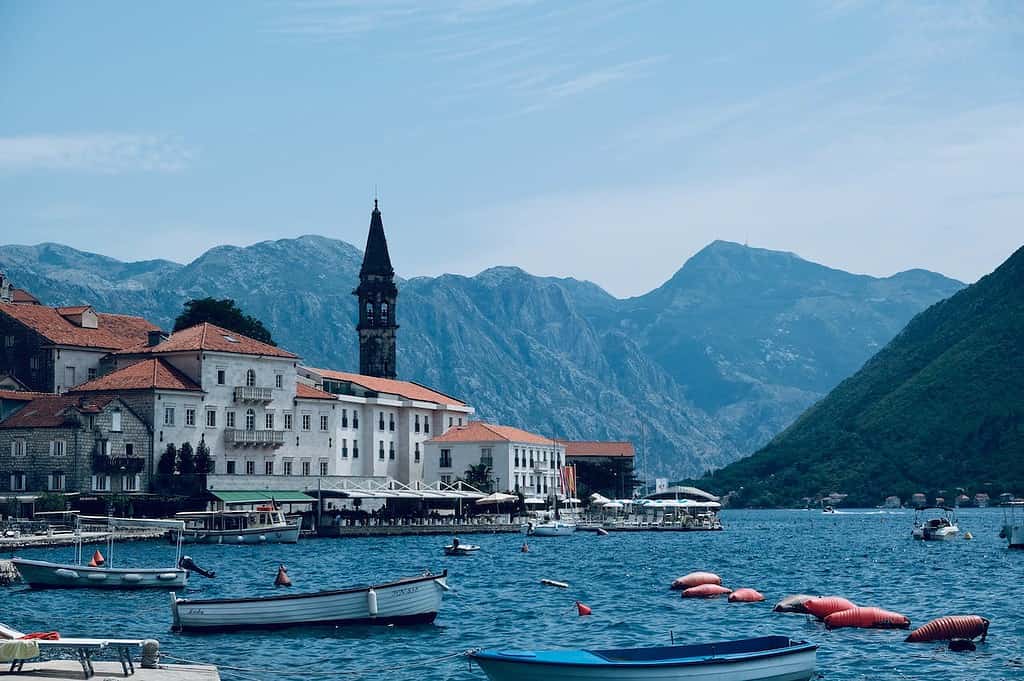
The Bay of Kotor isn’t Montenegro’s only jewel. Durmitor National Park promises thrilling hikes and mesmerizing landscapes. While the coastline offers fresh seafood galore, the interior serves up hearty stews and pastries. Montenegrin experiences come at affordable rates, with meals around $8–$15 and monthly rentals from $400–$600.
- Tourist Visa 🛂: Many nationals can enter for up to 90 days without a visa..
- Digital Nomad Visa👩🏼💻: Montenegro offers a 2 year digital nomad visa for all non EU citizens. Find out all the requirements here.
Montenegro
| Stat | Detail |
|---|---|
| Average Temperature | 15°C |
| Currency (vs USD) | Euro |
| Language (English Spoken %) | Montenegrin (40%) |
| Population | 620,000 |
| Average Salary (Net per Month) | $700 |
| Capital City | Podgorica |
9. Hungary

Nestled in the heart of Central Europe, Hungary is an eclectic blend of historical splendor and modern vibrancy. But it’s not just Budapest’s neo-Gothic architecture or the therapeutic waters of its renowned baths that make Hungary special; there’s so much more to explore beyond the capital.
While Budapest, split by the Danube River into Buda and Pest, is an undeniable attraction with its iconic Parliament building, the Széchenyi Thermal Bath, and lively ruin pubs, Hungary is teeming with other lesser-known gems. Cities like Pécs, with its early Christian necropolis; Eger with its fortress and wine cellars, and Szeged, known for its open-air theater festival, all narrate tales of Hungary’s rich past and vibrant culture.
Hungarian cuisine is an epicurean adventure. Dive into a bowl of hearty goulash, pörkölt (a meat stew), or try the chimney cake ‘Kürtőskalács’ for dessert. And don’t forget to taste the world-renowned Tokaji wines or take a sip of Pálinka, the traditional fruit brandy. A traditional meal in Hungary is not only delightful but also budget-friendly, with a full course often priced between $6 and $12.
A traditional bowl of Gulyás soup or Pörkölt might just cost you $5–$10. Monthly rentals outside the capital can be a mere $450–$550.
Hungary bursts into life with festivals like the Budapest Wine Festival, the Budapest International Documentary Festival, and the famous Sziget Festival, which draws music lovers from all over the globe. It’s a place where traditions meet contemporary art and music.
Hungary is also home to the largest thermal water cave system and the second-largest thermal lake in the world, Lake Hévíz. For those who love nature, Hortobágy National Park, part of the Alföld, or Great Plain, offers a unique landscape, shaped by pastoral culture spanning over two millennia.
- Tourist Visa 🛂: As part of the Schengen Area, the usual rules apply.
- Digital Nomad Visa👩🏼💻: XXXX
Hungary
| Stat | Detail |
|---|---|
| Average Temperature | 9.7°C |
| Currency (vs USD) | Hungarian forint |
| Language (English Spoken %) | Hungarian (20%) |
| Population | 9.7 million |
| Average Salary (Net per Month) | $900 |
| Capital City | Budapest |
10. Slovakia

Don’t limit Slovakia to just Bratislava. The High Tatras Mountains promise adventures for trekkers and skiers alike. Traditional dishes like Bryndzové halušky (potato dumplings with sheep cheese) cost about $5-$10. And for long-term stays, consider towns like Žilina or Poprad with rentals from $450 monthly.
- Tourist Visa 🛂: Another Schengen country with the standard 90/180 rule.
- Digital Nomad Visa👩🏼💻: XXXX
Slovakia
| Stat | Detail |
|---|---|
| Average Temperature | 8°C |
| Currency (vs USD) | Euro |
| Language (English Spoken %) | Slovak (29%) |
| Population | 5.4 million |
| Average Salary (Net per Month) | $1,100 |
| Capital City | Bratislava |
11. Bulgaria
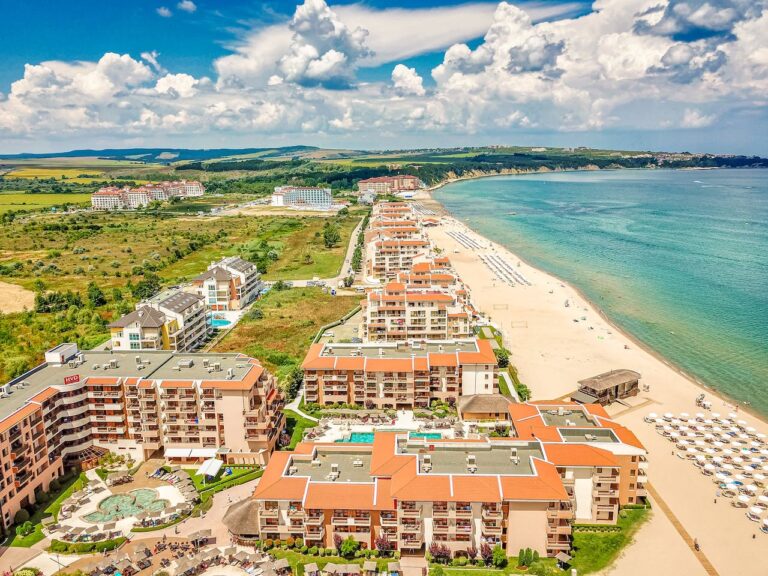
Bulgaria seamlessly blends its rich history with natural wonders. Plovdiv, Europe’s oldest inhabited city, offers a journey through millennia, while the Seven Rila Lakes are a trekker’s dream. Savor kavarma (meat stew) or banitsa (cheese pastry) for just $5–$8. Even in Sofia, Bulgaria’s vibrant capital, monthly accommodations range from $400 to $600.
Yes, next to Albania, Bulgaria is probably one of the two or three cheapest countries in europe to visit, especially in the small villages and country side.
- Tourist Visa 🛂: Many travelers can stay visa-free for up to 90 days within a 180-day period.
- Digital Nomad Visa👩🏼💻:
Bulgaria
| Stat | Detail |
|---|---|
| Average Temperature | 10.5°C |
| Currency (vs USD) | Bulgarian lev |
| Language (English Spoken %) | Bulgarian (25%) |
| Population | 6.9 million |
| Average Salary (Net per Month) | $650 |
| Capital City | Sofia |
Final words
Europe’s allure lies in its multifaceted tapestry, where each stitch represents a unique culture, tradition, and history. Its richness isn’t confined merely to its iconic landmarks or gourmet experiences; it’s also deeply woven into the cobblestone streets of medieval towns, the whispered tales of ancient ruins, and the warm smiles of locals sharing their centuries-old traditions. The beauty of this continent is that it doesn’t discriminate based on budget. Whether you’re a backpacker on a shoestring or a luxury seeker, Europe has a treasure waiting just for you.
Dive into the myriad experiences, from alpine villages to sun-soaked Mediterranean hamlets, from bustling eastern bazaars to serene northern fjords. Venture beyond the well-trodden and discover the hidden gems that promise memories for a lifetime. As you set forth on this European adventure, remember that the best experiences often lie in the unexpected. Here’s to discovering Europe’s heart, one affordable experience at a time. Safe travels, and may the journey surprise you!
Frequently Asked Questions About The Cheapest Countries to live in Europe
What are the cheapest European countries to visit?
In our expert opinion and after looking at the data, you should focus on:
- Bulgaria
- Albania
- Bosnia and Herzegovina
- Romania
What are the best times to visit these European countries?
The time to visit largely depends on the country and your preferences. Generally, the shoulder seasons, spring (April-June) and fall (September-November), offer mild weather and fewer tourists.
What is the cheapest month to visit Europe?
January and February are usually the cheapest months, as it’s winter and the off-peak tourist season in many European destinations.
Where is the cheapest European city to visit?
Cities in Eastern Europe like Sofia, Bulgaria, and Lviv, Ukraine, are some of the most affordable capital cities in Europe at the moment.
Is it cheaper to fly or take a train in Europe?
This depends on the distance and the deals you find. For shorter distances, trains can be more affordable and scenic. However, budget airlines offer competitive prices for longer routes.
What are the cheapest transportation options within Europe?
Buses and budget airlines are generally the most affordable options to travel around. However, if you’re looking to move to Europe or live in different places, consider getting a Eurail pass or looking into car-sharing options.
In conclusion, Europe offers a rich tapestry of experiences, and even if you’re on a budget, there’s a wealth of affordable places to explore. Whether you’re seeking a beach retreat, historic cities, or the serene countryside, the cheapest European countries on this list have something for everyone.
